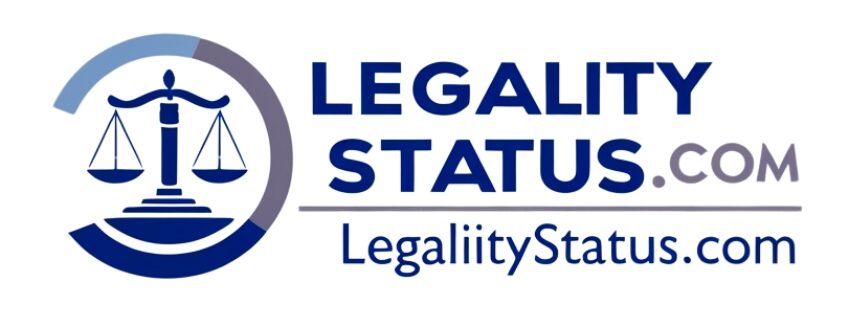Why Is Jai Alai Illegal? Unraveling the Complex Legal Status of the “Fastest Sport in the World”

Jai alai, often dubbed the “fastest sport in the world,” has a complex legal status in the United States. While not entirely illegal, jai alai faces significant legal restrictions and challenges in many areas. The sport’s close ties to gambling, concerns about player safety, and economic difficulties have all contributed to its murky legal standing. In this article, we’ll explore why jai alai is considered illegal in some jurisdictions, examine its current legal status, and delve into the factors that have led to its decline and legal scrutiny.
The Origins and Rise of Jai Alai in America
To understand why jai alai faces legal challenges today, we need to look at its history in the United States.
From Basque Country to U.S. Frontons
Jai alai originated in the Basque region of Spain and France centuries ago. The sport made its American debut at the 1904 St. Louis World’s Fair, captivating audiences with its lightning-fast action and exotic appeal. By the 1920s, jai alai had spread to several states, including Florida, where it found a particularly receptive audience.
The game is played on a three-walled court called a fronton. Players use a curved wicker basket called a cesta to catch and throw a hard rubber ball (pelota) against the front wall at incredible speeds. The object is to catch and return the ball in one fluid motion, making it difficult for opponents to return.
The Golden Age of Jai Alai: 1950s-1980s
Jai alai enjoyed immense popularity in the United States from the 1950s through the early 1980s. During this golden age:
- Frontons were built in several states, including Florida, Connecticut, and Rhode Island
- Crowds of thousands regularly packed venues to watch matches
- Top players became local celebrities, earning substantial salaries
- The sport attracted high-profile fans, including Ernest Hemingway and Babe Ruth
The Miami Jai-Alai Fronton, opened in 1926, became known as the “Yankee Stadium of jai alai.” In its heyday, the venue could seat over 13,000 spectators and often drew overflow crowds on weekends.
Is Jai Alai Actually Illegal?
The question “Why is jai alai illegal?” is somewhat misleading. The sport itself is not entirely illegal in the United States, but its legal status is complicated and varies by location.
The Current Legal Status of Jai Alai in the United States
Jai alai’s legality is closely tied to state gambling laws. In many states, the sport is not explicitly illegal, but the betting associated with it is prohibited. This has led to the closure of many frontons and the sport’s decline in popularity.
States Where Jai Alai Remains Legal
As of 2024, jai alai is still legally played in a few states:
- Florida: The sport’s last stronghold in the U.S., with a handful of active frontons
- Connecticut: While most frontons have closed, jai alai betting remains legal
- Rhode Island: Limited jai alai operations continue
In these states, jai alai is regulated as a pari-mutuel sport, similar to horse and greyhound racing. This means that bettors wager against each other, not the house, with the fronton taking a percentage of the betting pool.
Factors Contributing to Jai Alai’s Decline and Legal Challenges
Several factors have contributed to jai alai’s decline and the legal scrutiny it faces today.
The Devastating Impact of the 1988-1991 Players’ Strike
One of the most significant blows to jai alai’s popularity and legal standing was a prolonged players’ strike from 1988 to 1991. This labor dispute:
- Lasted three years, the longest in professional sports history
- Led to the use of inexperienced replacement players
- Alienated fans and bettors, many of whom never returned
- Caused irreparable damage to the sport’s reputation and financial stability
Proliferation of Gambling Alternatives
As jai alai struggled to recover from the strike, it faced increasing competition from other forms of gambling:
- State lotteries became more widespread and popular
- Native American casinos opened in many states
- Online gambling emerged as a convenient alternative
- Sports betting was legalized in more jurisdictions
These new options drew away many of jai alai’s core audience of gamblers, making it harder for frontons to stay financially viable.
Match-Fixing Scandals and Corruption Concerns
Like many sports with close ties to gambling, jai alai has been plagued by match-fixing scandals and corruption allegations. Some notable incidents include:
- A 1977 scandal in which several players were accused of throwing matches
- Ongoing suspicions about the influence of organized crime on the sport
- Concerns about the integrity of pari-mutuel betting systems
These issues have led to increased scrutiny from law enforcement and regulatory bodies, contributing to the sport’s legal challenges.
The Gambling Connection: Why Jai Alai Faces Legal Scrutiny
The close relationship between jai alai and gambling is at the heart of its legal troubles.
Pari-Mutuel Betting and Jai Alai
Jai alai has been intertwined with pari-mutuel betting since its introduction to the United States. This form of wagering, where bets are pooled and winners share the total stake minus a house fee, is legal in some states but heavily regulated.
The reliance on gambling revenue has made jai alai vulnerable to changes in betting laws and preferences. As other forms of gambling have become more accessible, jai alai has struggled to maintain its audience and financial viability.
State-by-State Gambling Regulations
The legal status of jai alai varies widely depending on state gambling laws:
- Some states explicitly prohibit betting on jai alai
- Others allow it only at licensed pari-mutuel facilities
- A few states permit more extensive jai alai operations
This patchwork of regulations has made it difficult for the sport to maintain a consistent presence across the country.
Safety Concerns and Jai Alai’s Legal Status
While gambling-related issues are the primary reason for jai alai’s legal challenges, safety concerns have also played a role.
The Dangers of the “Fastest Sport in the World”
Jai alai is known for its extreme speed and potential for injury:
- The pelota can travel at speeds up to 180 mph
- Players often make acrobatic plays to reach difficult shots
- The hard court surface increases the risk of falls and collisions
These factors have led to concerns about player safety and potential liability for fronton operators.
Player Injuries and Liability Issues
Some notable safety issues in jai alai include:
- Eye injuries from errant pelotas, occasionally resulting in blindness
- Chronic shoulder and elbow problems similar to those experienced by baseball pitchers
- Concussions and other impact-related injuries
The risk of serious injury has made it more difficult and expensive for frontons to obtain insurance coverage, contributing to the sport’s economic challenges.
Economic Challenges Facing Jai Alai
The legal and safety issues surrounding jai alai have contributed to significant economic difficulties for the sport.
The High Costs of Operating a Fronton
Running a jai alai fronton is an expensive proposition:
- Maintaining the specialized court and equipment
- Paying player salaries and benefits
- Covering insurance and liability costs
- Marketing and promoting events
As revenues have declined, many frontons have struggled to cover these costs, leading to closures and further legal restrictions.
Declining Attendance and Betting Revenue
The combination of legal challenges, safety concerns, and increased competition has led to a sharp decline in jai alai’s popularity:
- Attendance at matches has plummeted from thousands to mere hundreds
- Betting handles have fallen dramatically
- Many frontons now rely on attached casinos or poker rooms to stay afloat
This economic decline has made it harder for jai alai to justify its continued legal status in many jurisdictions.
Efforts to Revive and Legalize Jai Alai
Despite the challenges facing jai alai, there have been efforts to revive the sport and expand its legal status.
Modernizing the Sport for a New Generation
Some initiatives to breathe new life into jai alai include:
- Introducing new betting options to attract younger audiences
- Incorporating technology to enhance the spectator experience
- Promoting the sport’s unique attributes and rich history
These efforts aim to make jai alai more appealing to modern audiences while addressing some of the legal and economic challenges it faces.
Potential Expansion of Legal Jai Alai
There have been discussions about expanding legal jai alai operations in some areas:
- Proposals to allow jai alai at existing gambling facilities
- Efforts to legalize sports betting, which could include jai alai
- Initiatives to promote jai alai as a cultural and heritage sport
While progress has been slow, these efforts show that there is still interest in preserving and expanding jai alai’s legal status.
The Future of Jai Alai: Legal Landscape and Potential Comeback
As we look to the future, the question of jai alai’s legality and viability remains open.
Lessons from Other “Dying” Sports
Jai alai’s struggles are not unique in the world of sports. Other activities that have faced similar challenges include:
- Horse racing, which has adapted by embracing online betting and modernizing facilities
- Boxing, which has found new life through promotions and pay-per-view events
- Roller derby, which has reinvented itself as a grassroots, community-driven sport
These examples suggest that with the right approach, jai alai could potentially overcome its legal and economic hurdles.
Can Jai Alai Overcome Its Legal Hurdles?
For jai alai to survive and thrive, several key issues need to be addressed:
- Updating gambling laws to create a more favorable environment for the sport
- Improving player safety to reduce liability concerns
- Finding new revenue streams beyond traditional betting
- Attracting a new generation of fans and players
If these challenges can be met, there may be a path forward for jai alai to regain its legal footing and find a place in the modern sports landscape.
Final Checkpoint: The Complex Legality of Jai Alai in Modern America
The question “Why is jai alai illegal?” doesn’t have a simple answer. While the sport itself is not universally illegal, its close ties to gambling, safety concerns, and economic challenges have led to significant legal restrictions in many areas.
Jai alai’s journey from a popular spectator sport to its current diminished status is a cautionary tale about the intersection of sports, gambling, and changing cultural preferences. The sport’s future legality will likely depend on its ability to adapt to new regulatory environments, address safety concerns, and find innovative ways to attract fans and revenue.
As we’ve seen, the legal status of jai alai varies by state and continues to evolve. While the sport faces significant hurdles, efforts to revive and modernize jai alai suggest that there may still be a future for this unique and exciting game in America. Whether jai alai can successfully navigate its legal challenges and regain its former popularity remains to be seen, but its story serves as a fascinating case study in the complex relationship between sports, law, and society.






